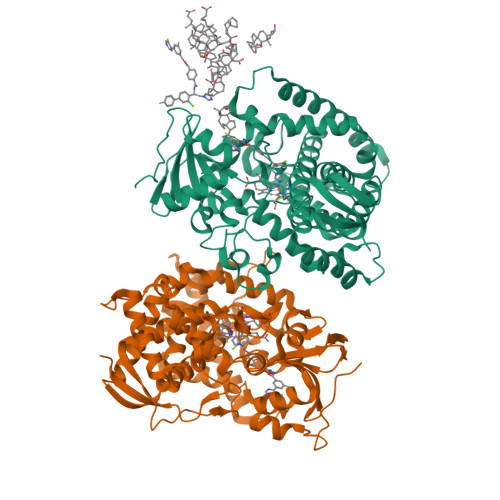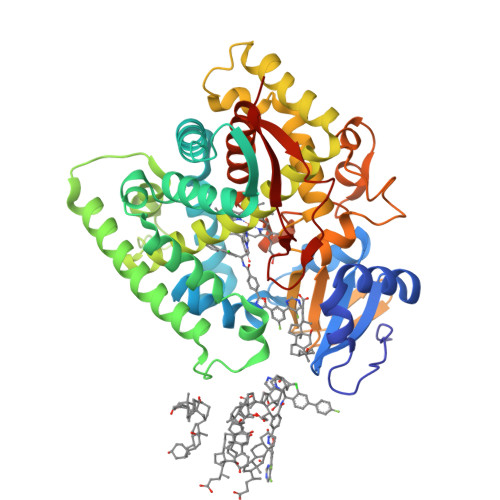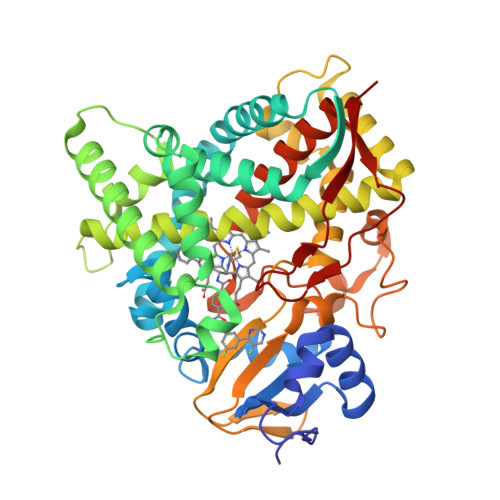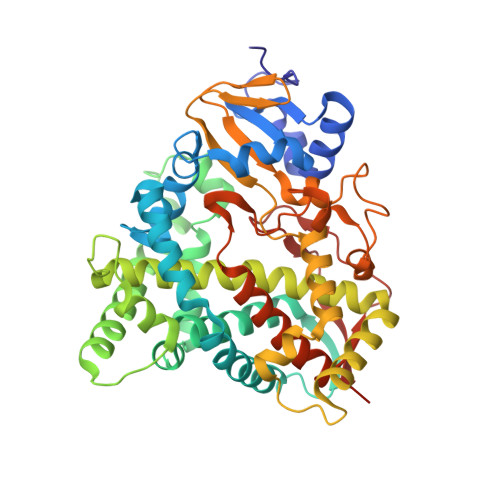Validation of Human Sterol 14 alpha-Demethylase (CYP51) Druggability: Structure-Guided Design, Synthesis, and Evaluation of Stoichiometric, Functionally Irreversible Inhibitors.
Friggeri, L., Hargrove, T.Y., Wawrzak, Z., Guengerich, F.P., Lepesheva, G.I.(2019) J Med Chem 62: 10391-10401
- PubMed: 31663733
- DOI: https://doi.org/10.1021/acs.jmedchem.9b01485
- Primary Citation of Related Structures:
6Q2T - PubMed Abstract:
Sterol 14α-demethylases (CYP51) are the cytochrome P450 enzymes required for biosynthesis of sterols in eukaryotes, the major targets for antifungal agents and prospective targets for treatment of protozoan infections. Human CYP51 could be and, for a while, was considered as a potential target for cholesterol-lowering drugs (the role that is now played by statins, which are also in clinical trials for cancer) but revealed high intrinsic resistance to inhibition. While microbial CYP51 enzymes are often inhibited stoichiometrically and functionally irreversibly, no strong inhibitors have been identified for human CYP51. In this study, we used comparative structure/functional analysis of CYP51 orthologs from different biological kingdoms and employed site-directed mutagenesis to elucidate the molecular basis for the resistance of the human enzyme to inhibition and also designed, synthesized, and characterized new compounds. Two of them inhibit human CYP51 functionally irreversibly with their potency approaching the potencies of azole drugs currently used to inhibit microbial CYP51.
Organizational Affiliation:
Department of Biochemistry , Vanderbilt University School of Medicine , Nashville , Tennessee 37232 , United States.



















